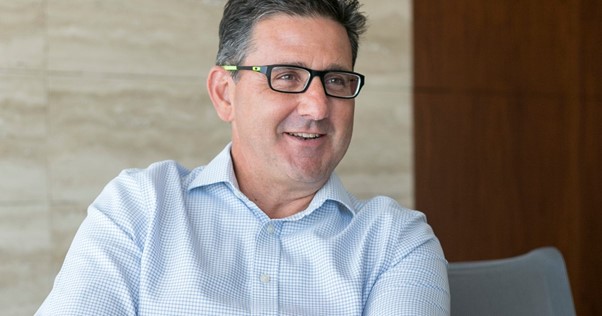The downturn experienced last year may have a “flip side” in 2021 as individuals with ballooning savings will be looking for investment opportunities, opening the door to an “interesting” year.
Speaking to BusinessNow.mt, David Curmi, CEO at one of Malta’s top investment firms, says that the pandemic has caused a number of ripple effects in financial markets.
“While we mostly read about the negative ones, especially locally where a number of domestic companies have unfortunately been hit very hard, one of the positives that we have seen is that individuals have amassed significant savings over the last year.”
A recent Eurostat report confirms this, noting that deposits increased by over a billion euro since the start of the pandemic.
This increase can be attributed to several factors. As the COVID-19 pandemic ripped through the local economy, companies put their investments on hold, thus choking off the natural flow of opportunities investors became accustomed to.
Meanwhile, travel restrictions and the limits placed on venues and events meant that spending opportunities were similarly scant.
Mr Curmi believes that some of this cash will be looking for a home, with interest on bank deposits at an all-time low.
“The local capital market is a natural home for a portion of this cash as investors feel comfortable with investing on the domestic market,” he says.

While noting that few companies came to the market to raise funds since the outbreak of the pandemic, he acknowledges that this is only normal given the level of “economic mayhem” and uncertainty that was caused.
The Curmi & Partners CEO expects that 2021 will be “an interesting year” in this respect, not only because of the vaccine rollout but also, he says, because a number of companies that shelved their fundraising plans in 2020 are planning to come to the market in 2021.
“This should give investors the opportunity to utilise some of their savings in a more productive manner.”
Asked to comment about a remark by a different David Curmi, until recently CEO of MAPFRE MSV Life before taking on the role of chairman at Air Malta, where he said the local stock market is “shallow”, Mr Curmi said the remark needs to be put into perspective.
“For an entity like MSV, the local market is certainly ‘shallow’ given their very large portfolio of investments. Clearly, retail investors are not in that category, and in the main investing on the local market should be fairly straightforward.”
He does acknowledge that the local market is not as deep as international markets in terms of liquidity (the ability to buy/sell an investment easily), noting that while this may present some challenges for the larger retail or institutional investors, “generally speaking the Malta Stock Exchange offers an array of different investment opportunities for all types of retail investors”.
He warns new investors that local bonds are not generally guaranteed investments and that companies, as do governments, face cash flow challenges from time to time. “One needs to be completely comfortable with this risk before diving into an investment,” he says. “In many ways, the pandemic has highlighted the risks that some of these companies pose.”
“Having said that there are a number of select good quality companies on the local market that offer attractive opportunities, and the pipeline of new investments does look interesting.”
With banks tightening lending conditions and the latent demand for opportunities by investors, will companies find private or bond issues as more attractive ways to raise capital, we wonder?
“I do not see the local capital market as the venue for companies that fail the more restrictive bank lending requirements,” he replies, “and it should certainly not present itself as this. If this is the reason for coming to the market, then ostensibly an investor would do well to approach these companies with an extra level of care, or even avoid them altogether.”
“More generally, however, there is a fundamental role for capital markets to play in any economy,” he says. “This is the reason for their continued success the world over.”
“From a corporate perspective, capital markets offer a much wider and deeper source of capital which companies can benefit from. If the market is approached for these reasons and not as a second best option after having failed the bank lending test, then the long term success of the relationship between investors, the company and the market is more assured. And such companies are likely to use the market repeatedly.”
Turning finally to the recently introduced REIT – Real Estate Investment Trusts, does he foresee a boom over the next year or two for the reasons described above, as investors seek innovative, low risk?
“This is potentially a very exciting development, and given the Maltese peoples love affair with property, should prove attractive,” he says.
“However,” he continues, “there are still a number of structural blockages, specifically on the tax side, that need to be addressed to clear the way before one can consider it to be a serious investment class. Hopefully we will get some clarity on these later this year. It would be a pity not to have this as I am convinced there is a real opportunity here.”
Featured Image:
David Curmi – LinkedIn Photo
Malta introduces new 15% tax regime for highly skilled professionals
Qualifying individuals are taxed at a flat 15% rate for an initial five-year period
Malta’s inflation edges up to 2.7% in October as food and services lead price pressures
The October RPI reading indicates some re-acceleration in consumer-facing sectors after a period of summer stabilisation
db Group reports turnover of almost €100 million and record profit as it opens bond issue to public investors
This coincides with the launch of a €60 million bond programme to support the Group’s continued expansion






